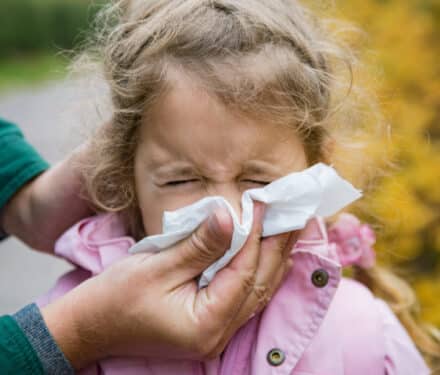Flu season 2023 – all your questions answered
Influenza expert, Associate Professor Michelle Tate shares what you need to know for the 2023 flu season, including what to do if you get flu symptoms and who is most at risk.
RECEIVE YOUR ANNUAL FLU REPORT IN YOUR INBOX SUBSCRIBE TO HUDSON NEWS
When is the flu season in Australia?
Australia’s flu season has historically been April to October each year. But the 2023 flu season had an early start, just like 2022, when it started in March and peaked May-June.
What are flu symptoms?
Flu symptoms usually start with a runny nose, sneezing and sore throat, like a cold. What makes the flu different is that it takes hold quickly and moves into headaches, fever or chills, aching muscles and joints, cough, shortness of breath, fatigue, and weakness. In some cases, vomiting and diarrhea can occur in children. Vomiting and diarrhoea without other symptoms by be gastroenteritis. If your symptoms are severe, go to a doctor or hospital.
How long do flu symptoms last?
Flu symptoms last from a few days to a couple of weeks. While fever and aching muscles usually stop within a week, a cough and general fatigue may continue for more than a week.
Who is most a risk?
For the young, old, and people with chronic illnesses, suppressed immune systems the flu can be life-threatening. Flu also can make underlying medical problems such as asthma and chronic heart disease worse. By the time patients with severe flu are admitted to hospital there are no effective drugs available to reduce the response the virus. Yearly vaccination helps protect against the development of severe or life-threatening flu.
I’ve got the flu, what should I do?
Contact your doctor as soon as possible. There are anti-viral drugs that can make the infection milder, however they need to be taken as soon as you develop symptoms to be effective. If you experience severe symptoms or have other medical conditions, see a doctor or go to hospital.
Just like COVID-19, stay at home and limit contact with family members and others as much as possible to reduce the spread of the virus. Wear a mask when around others, cover your mouth when you sneeze and throw out used tissues regularly. Clean and disinfect surfaces you touch.
How many people were affected in Australia by the 2022 flu season?
There were 225,332 confirmed cases, 1,832 hospitalised, 122 in ICU, 308 deaths (median age 82 years). However, without accurate testing, it’s important to remember that overall case numbers were likely much higher.
How is the flu diagnosed?
Your doctor can diagnose the flu by checking symptoms and by taking a nose or throat swab for testing, just like COVID.
How do I avoid catching the flu
It’s like avoiding COVID – the best protection is vaccination, which will help you avoid catching flu, reduce your symptoms if you do, and minimise the spread to others. Vaccinated people are about 40 per cent less likely to get severe influenza.
How long is the flu contagious?
The flu can spread from an infected person anytime from a day before symptoms appear to about a week later. Children and people with weakened immune systems may be contagious longer.
How does the flu vaccine work?
When you get a virus, your immune system builds a defence by making antibodies. Should you encounter that virus again, those antibodies recognise the virus and know how to protect you from getting sick. Every year, flu viruses rapidly mutate or change, so having the flu one year doesn’t protect you from getting it in the future, but it does help. The influenza vaccine contains proteins from the virus that triggers your immune system to build an antibody protection. If you are exposed to that virus – your immune system recognises it and knows how to protect you.
What does the 2023 flu vaccine protect against?
The 2023 flu vaccination prevents against the four most common strains of the flu of influenza virus that are expected to be the most common that season.
The flu and COVID-19 vaccine are separate and can be given on the same day.
How long does it take for the flu vaccination to work?
It takes two to four weeks to be effective, so given that cases in 2023 are already on the rise, it’s wise to be vaccinated as soon as possible.
Will I feel unwell after having a flu vaccine?
There is no live virus in the flu vaccine. It is made up of fragments of the virus, so it can’t cause the flu itself. However, there are side effects that include soreness where the shot was given and low-grade flu-like symptoms which will resolve after one to two days.
Do I need to get vaccinated every year?
The highest level of protection occurs in the first three to four months after vaccination. Your protection then declines rapidly, so it’s important to receive the latest vaccine every year. Flu viruses also mutate or change quickly, so having flu one year doesn’t protect you from getting it in future, but it does help
Should I get a flu shot after having the flu?
Yes, especially if it wasn’t confirmed through a laboratory that it was the flu. Also, there is usually more than one strain circulating and the vaccine can protect again four different types.

What useful to know about COVID and the flu in 2023?
A swab test done by your doctor can test for three viruses – flu, COVID and RSV. At-home nasal self-test that detects both COVID-19 and influenza viral infections have been developed. These test kits will hopefully be available in the near future.
Can children and infants be seriously affected by the flu?
Alarmingly, 140 deaths have been reported in children in the USA in the recent 2022-23 flu season. Last year in Australia 56 per cent of hospital patients with flu were children younger than 16, those aged from five to nine were mostly likely to be hospitalised, followed by children under five. Flu cases and vaccination declined during COVID, because of social distancing. However, we now have low immunity and increased susceptibly to the flu. Vaccination prevents a severe response to the flu and reduces transmission in schools and communities.
There were record hospitalisations RSV last year, how can parents prepare for RSV in 2023?
Respiratory virus expert, A/Prof Michelle Tate share’s what parents need to know about RSV in 2023.
 A/Prof Tate investigates how inflammation turns from protector to destroyer in severe and fatal viral infections including influenza. By studying this hyperinflammatory response, A/Prof Tate and her team are identifying therapeutic targets and treatment strategies to limit hyperinflammation and save lives.
A/Prof Tate investigates how inflammation turns from protector to destroyer in severe and fatal viral infections including influenza. By studying this hyperinflammatory response, A/Prof Tate and her team are identifying therapeutic targets and treatment strategies to limit hyperinflammation and save lives.
Why do you research the flu and pandemics?
Without effective drugs to treat severe flu, we will always be at risk. Our aim is to develop new drugs that act directly on cells in the lung to protect us from severe infection by limiting damaging inflammation and the ability of viruses to replicate.
Why is your research vital?
When new viruses emerge, vaccines take time to develop and roll out, so we can’t rely on vaccination alone. We need new drugs that can be stockpiled for rapid use to save lives in the next pandemic – which is inevitable.
“It’s because of supporters like you that our researchers can make progress on new drugs that protect us from viruses like the flu. Donate today and power our research.” – A/Prof Michelle Tate
Contact us
Hudson Institute communications
t: + 61 3 8572 2761
e: communications@hudson.org.au




